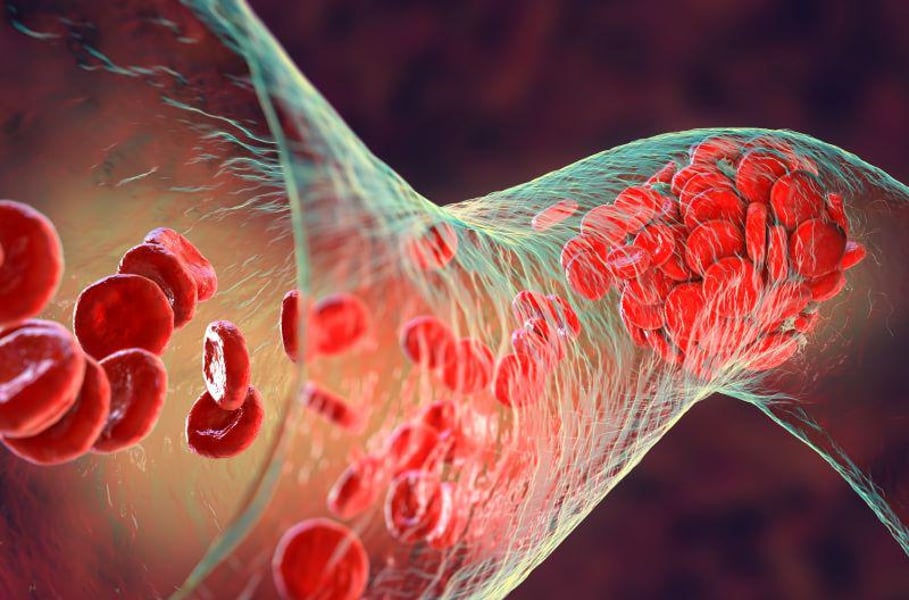Risk for First-Time Clot Events Raised After COVID-19 Diagnosis

THURSDAY, Sept. 29, 2022 (HealthDay News) -- A high relative incidence of vascular events soon after COVID-19 diagnosis is seen for arterial thromboses and venous thromboembolic events (VTEs), according to a study published online Sept. 19 in Circulation.
Rochelle Knight, from the University of Bristol in the United Kingdom, and colleagues assessed vascular diseases after COVID-19 diagnosis. The analysis included 48 million adults identified from English and Welsh electronic health records (Jan. 1 to Dec. 7, 2020).
The researchers found that adjusted hazard ratios for first arterial thrombosis after COVID-19 diagnosis declined from week 1 after COVID-19 diagnosis to weeks 27 to 49 (adjusted hazard ratio, 21.7 to 1.34) compared with no COVID-19 diagnosis. For first VTE after COVID-19 diagnosis, risk declined from an adjusted hazard ratio of 33.2 in week 1 to 1.80 during weeks 27 to 49. For hospitalized versus nonhospitalized COVID-19, Black or Asian versus White people, and among people without versus with a previous event, risk remained higher for longer after COVID-19 diagnosis. After 1.4 million COVID-19 diagnoses, the estimated population-level increases in the risk for arterial thromboses and VTEs 49 weeks after COVID-19 diagnosis were 0.5 and 0.25 percent, respectively, corresponding to 7,200 and 3,500 additional events, respectively.
"These results support policies to prevent severe COVID-19 by means of COVID-19 vaccines, early review after discharge, risk factor control, and use of secondary preventive agents in high-risk patients," the authors write.
Two authors disclosed financial ties to the pharmaceutical industry.
Related Posts
Wildlife Crossings Over Highways Save Human Lives, Too
WEDNESDAY, Aug. 31, 2022 (HealthDay News) -- In Washington state, 22 wildlife...
Outcomes Worse for Children With Type 1 Diabetes Who Are Black
MONDAY, May 9, 2022 (HealthDay News) -- Black children with type 1 diabetes...
Anxious? Maybe You Can Exercise It Away
https://consumer.healthday.com/9-13-anxious-maybe-...
